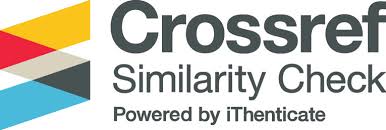Antibacterial Activity Studies Ethanolic Extract, Methanol Extract and The Infusion of Bayam Duri (Amaranthus spinousus) Leaves and Cakar Ayam (Sellaginella doederleinii Hieron) Herbs toward Bacteria Caused Pneumonia
Abstract
Pneumonia is a respiratory system disease which the alveoli become inflamed and have fluid accumulation. Pneumonia is a serious infection that affects many children and adults in a fundamental way around the world. There are many bacteria that cause diseases such as pneumonia, among others, are used in this test are Streptococcus pneumonia, Klebsiella pneumonia, Streptococcus haemolyticus alpha and beta. Plants used in this study are bayam duri leaves and cakar ayam herbs.
Mikrodilusi methods used for testing antibacterial activity. The test is performed to extract ethanol, methanol extracts and infusions of leaves patikan kebo and herbaceous rumput mutiara with the same concentration with the largest concentration is 1024 ug / ml following concentration by dilution continued until the third column will have the smallest concentration. Plates were incubated at 37 ° C for 24 h and then observed the clear (no microbial growth). The smallest
concentration at which no visible microbial growth defined as the MIC (NCCLS, 2003).
Based on the testing of antibacterial activity of the infusion, methanol extract and ethanol extract of leaves of bayam duri leaves and cakar ayam herbs, with the broth method microdillution, it appears that the most active extracts were ethanolic extract of bayam duri leaves and ethanolic extract cakar ayam herbs on the bacteria Streptococcus pneumoniae, Streptococcus haemolyticus alpha and Streptococcus haemoyiticus beta, and Klebsiella pneumonia although the effect is lower than the standard drug tetracycline.












